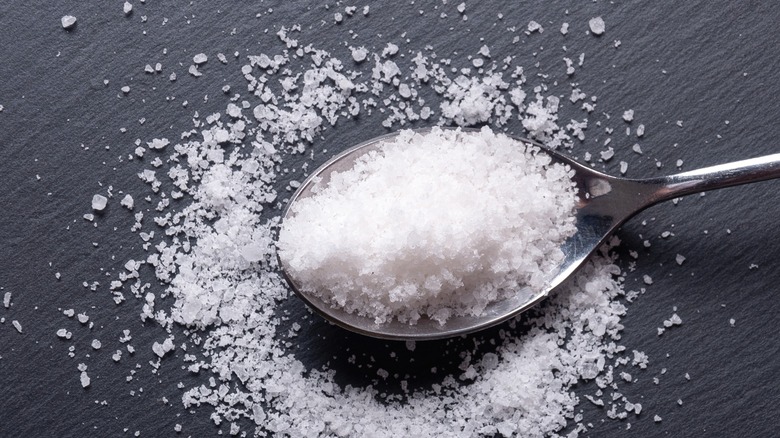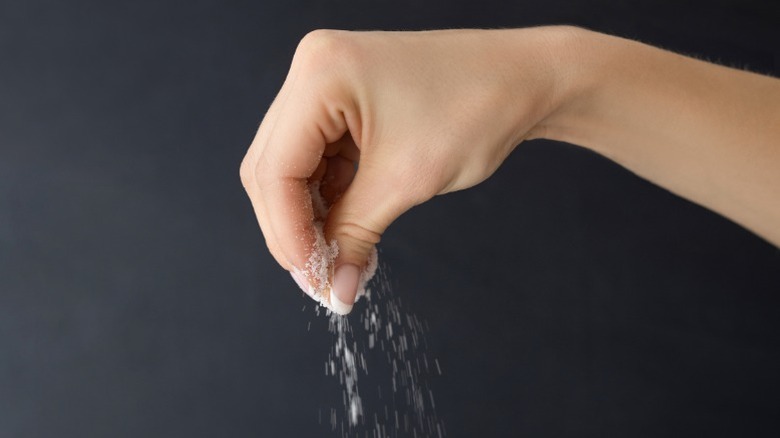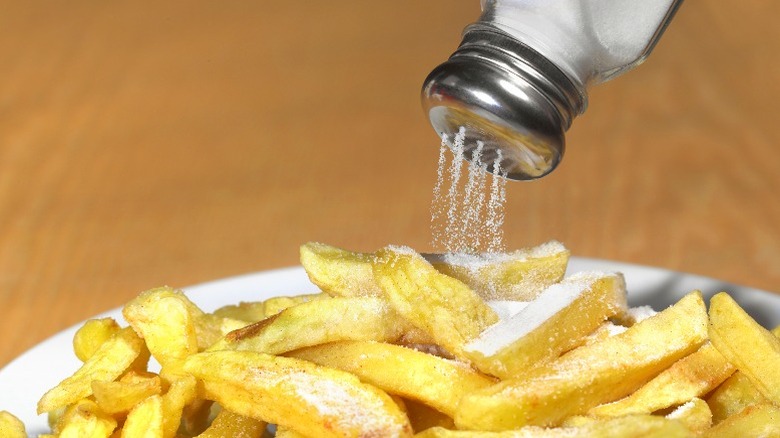What Sets Kosher Salt Apart From The Rest?
The existence of so-called "kosher salt" would seem to raise questions about other kinds of salt. How can salt — a mineral, after all – be kosher, or indeed non-kosher? Does it have to be mined under the careful supervision of a rabbi? If you sprinkle some on a pork chop or a cheeseburger, does it become non-kosher? And why is it such a valued presence in even the most gentile of pantries?
Before we get to any of that, though, let's talk about what kosher salt is. It's a particularly flaky kind of sea salt, free from common salt additives like iodine, that's used by chefs and bakers all around the world. If a recipe tells you to use salt without specifying otherwise, it's safe to assume that you should use kosher salt. But why is that the case, and what, if anything, does it have to do with Jewish dietary restrictions?
Kosher salt's big flakes make it useful
Kosher salt is more accurately referred to as koshering salt. In order to prepare a piece of meat for consumption under Jewish dietary guidelines, blood and other kinds of moisture must be drawn out of it first. The large, thick grains of kosher salt make it ideally suited to such a task — but that's not the only reason why those big flakes come in handy.
When a recipe calls for "a pinch of salt", it's being deliberately imprecise, allowing you to control the level of salt you want in your dish. (This is why you'll rarely see a baking recipe, which calls for precise measurements, asking for a pinch of anything.) But if you reach into a bowl of fine-grain table salt, it's hard to pull out the exact amount you want: too stingy a pinch can undersalt your dish, and too generous a pinch can oversalt it. With thick grains of kosher salt, it's much easier for your fingers to control the precise amounts needed for whatever it is you're making.
A lack of additives makes kosher salt ideal for cooking
Table salt will usually have some kind of additive, such as iodine or fluoride, which keeps the grains from caking and clumping together. This is very handy if you're putting it in a shaker and would like nice, even applications of the stuff on your fluffy, creamy scrambled eggs, but it's somewhat less handy if you're cooking with it. These additives leave a slight chemical aftertaste; some may notice it and others may not, but it's not something you want lingering in your dish regardless.
Kosher salt doesn't have those sorts of additives, and as such is free from that odd, metallic aftertaste. In fact, the taste of all kosher salt is pretty uniform across brands, making for a very standardized cooking experience. In short, you know what you're getting when you take a pinch of kosher salt, and that reliability is what makes it so useful for cooks and bakers alike.


